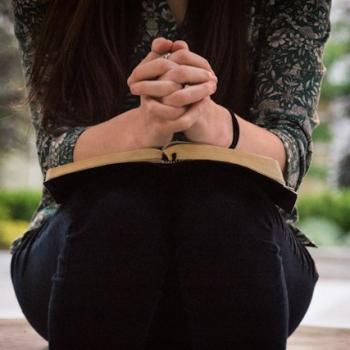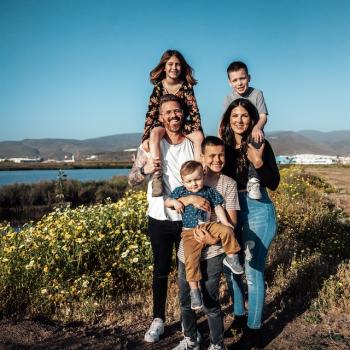
Today, more than ever before, as many as twenty-five percent of dating couples have different faith relationships. Many of these couples go on to become husband and wife. So what is their secret? How do they get along when they believe differently?
Dating someone of a different faith can be a unique and enriching experience. It can also be challenging. You’ll want to take many things into consideration if you are considering dating someone of a different faith.
It’s important to remember to respect the other person’s faith. Even if you don’t believe exactly the same, you’ll need to be respectful. This is a great time to learn about each other’s beliefs. Gain an understanding of the different rituals and customs and get to know one another better.
Communication
Ask any couple in an interfaith relationship how they make it work, and you’ll likely hear that communication is the key to the relationship. They talk about everything. They focus on what matters the most to them and their partner.
Honest and open communication is the key to their relationship. It’s important to discuss your different beliefs. It’s important that you understand the different rituals and practices. If you work to understand each other and each other’s beliefs, you’re going to get along better.
When two people fall in love, they don’t typically stop and ask, “What is your religion? What do you believe?” before they fall in love. However, knowing the answers to these questions is important if you plan to be together long-term.
Communicating your beliefs should be done openly and honestly, but it shouldn’t ever pressure your partner to believe exactly as you believe. Rarely does that work. That’s also not very respectful; relationships must be based on communication and respect.
What the Bible says about interfaith relationships
Many faiths choose to only date or marry those who are in their faith. For those who do date and marry, this scripture verse is often used to show that there is nothing in the Bible against dating or marrying someone of a different faith.
“1 Corinthians 7: 12 -16– To the rest I say this (I, not the Lord): If any brother has a wife who is not a believer and she is willing to live with him, he must not divorce her. 13 And if a woman has a husband who is not a believer and he is willing to live with her, she must not divorce him.”
Understanding
Before embarking on a committed long-term relationship, it’s important to take the time to get to know one another and learn about one another’s beliefs. Share your values and see how they align. Do you both believe in honesty and communication as well as respect?
How do you celebrate different religious holidays? Will you be able to come to an agreement as to how you’re going to celebrate these different holidays? How will this agreement change when you have children?
How do your families celebrate these holidays, and what are their expectations of you two as a couple on holidays? Can you find a common ground for celebrating such events together as a couple with your families? Depending on your generation, this may be challenging.
New Traditions
Many couples choose to start new traditions rather than challenge one another on such things. They often blend their beliefs together to show solidarity without showing either as a preference. A good example of this might be Christmas. A pagan or atheist will often participate in this holiday as a secular event, while a Christian will celebrate this holiday as the birth of Jesus.
The new couple might choose to read both the Bible’s Christmas story and a secular version of Christmas throughout the season to show children both views. In interfaith relationships, the couple often chooses their own unique version of celebrating holidays.
Others simply go to the various relative’s houses during the holidays and join in on how each family celebrates the holiday uniquely. Regardless, it’s important for a new couple to start their own traditions.
Find ways to respect both perspectives. One family I know comprises a Jewish woman, her two children, and a Christian man. The woman and the children follow the Jewish faith tenets. They don’t put a Christmas tree up in their main room; however, the man has a tabletop tree in his upstairs office.
He decorates his office for Christmas but not the rest of the house. During the 12 days of Christmas, he gives the children a small gift each day. This is how their Christmas gifts are distributed. It works well for them as a family.
The children attend Christmas Eve services with their father and celebrate with him by partaking in the Christmas Eve service. This way, the children are exposed to both perspectives. When they are of age, they will make their own choices.
Careful Planning
It takes careful planning to make a relationship between different faiths work. Both parties must work together to understand and be respectful of one another. Starting new traditions is important to meld the pair into a solid couple.
Before children are ever brought into this world, the couple should work out the details of which faith they will be raising the children in or if they can choose at a certain age. They may also need to work out family traditions and visits.
Will the grandparents have any say in their child’s lives? These details may seem minor, but they can quickly turn major if the couple hasn’t already gone over them together and devised a plan to work these out.
There are many potential conflicts that could arise if the couple hasn’t already worked out the details. Great care should be taken to ensure that potential conflicts are worked through carefully and respectfully.
Remember, successful relationships will require effort, understanding, and compromise. Of course, this is true of all relationships, not just interfaith relationships. Great care must be taken to work through differences in faith. It will take a great deal of patience and understanding from both partners. If the differences are causing more challenges, it may be time to consider counseling or reassess the relationship.













